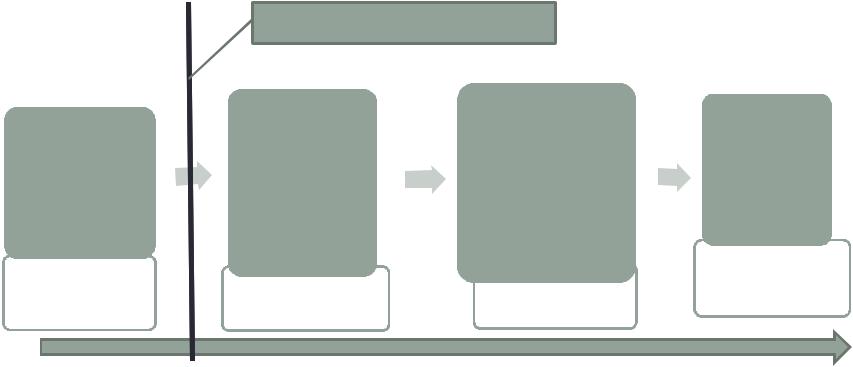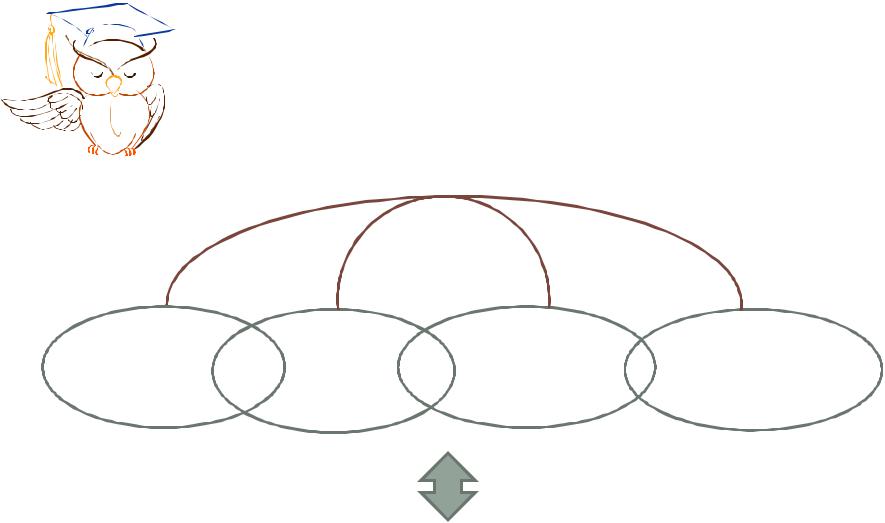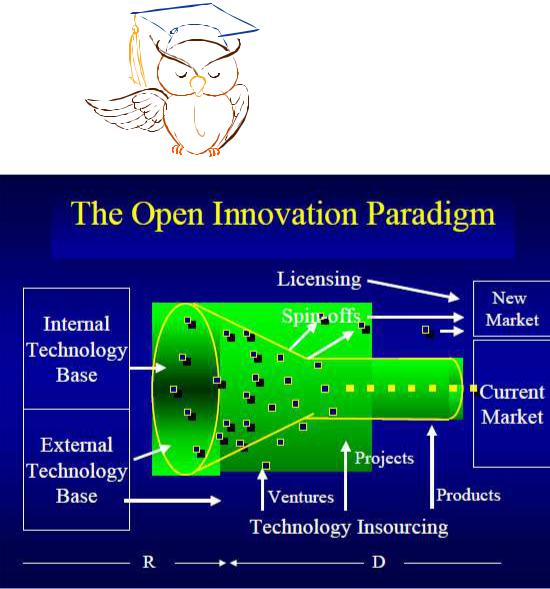
Topic 3
.1.pdf
05/10/2012 |
©Elena G. Serova serovah@gmail.com |
1 |
|
|
|
ECONOMICS OF INNOVATION
Elena G. Serova,
PhD in Economics,
Associate professor
St. Petersburg State University of Economics and Finance
serovah@gmail.com

05/10/2012 |
©Elena G. Serova serovah@gmail.com |
Страница 2 |
|
|
|
Course content and structure
Course introduction
Topic 1. Economics and Innovations
Basic definitions and concepts. People, organizations and innovation
Topic 2. Information and Knowledge Management
Information and decision making. Knowledge management in organizations.
Topic 3. Innovation Management in the Knowledge-driven Economy.
Managing Knowledge for Innovation. Business Innovation Models and Strategy.
Topic 4. ICT for Innovation Economics The Role ICT in the knowledge driven economy. Knowledge Management Systems.
Conclusion
05/10/2012 |
©Elena G. Serova serovah@gmail.com |
3 |
|
|
|
Topic 3. Innovation Management in the Knowledge-driven
Economy
•Theme 5. Managing knowledge for innovation.
Innovation as an interactive process. Impact of knowledge on innovation dynamics. Open innovation. Innovation Management Techniques. Case-study.
•Theme 6. Business Innovation Models and Strategy.
Theoretical foundation of business models. Examples of business models. Business models as innovation. Business Models, business strategy, and competitive advantage. Open innovation and open business models.

05/10/2012 |
©Elena G. Serova serovah@gmail.com |
4 |
|
|
|
External experts create new “best practice” innovations
•Knowledge created
Innovation as linear or an interactive process
Traditional views – innovation as a linear process
Firm boundary
Firms |
Innovations |
become |
are |
aware of |
implemented in |
and decide |
the firm as |
to adopt |
changes in |
efficient |
products/ |
innovations |
processes |
• Knowledge |
• Knowledge |
diffused |
implemented |
Used of innovation becomes routine
•Knowledge used

05/10/2012 |
©Elena G. Serova serovah@gmail.com |
5 |
|
|
|
Innovation as an interactive process
Knowledge creation, diffusion, implementation & use
Agenda
A Selection Implementation Routinization
Formation
Social, organizational and political context and networks

05/10/2012 |
©Elena G. Serova serovah@gmail.com |
6 |
|
|
|
Agenda formation
•The process of becoming aware of new ideas and of the problems that they may help to address
Innovation as an interactive process
Selection |
|
Implementation |
|
Routinization |
|
|
|
|
|
• The further |
|
• The process of |
|
• The situation |
processing and |
|
actually |
|
where the |
promotion of |
|
introducing the |
|
understanding of |
ideas within the |
|
selected ideas to |
|
the innovation |
organization |
|
the organization |
|
has developed to |
such that |
|
and applying |
|
a point at which |
particular ideas |
|
them to the local |
|
its use has |
are chosen to go |
|
context in the |
|
become ‘normal’ |
forward for |
|
forms of new |
|
and it is now |
further |
|
products, |
|
seen as a |
development |
|
services, |
|
standard |
because they are |
|
technologies or |
|
working practice |
seen as |
|
processes |
|
to be adopted in |
matching the |
|
|
|
other parts of |
problems the |
|
|
|
the organization |
organization, or |
|
|
|
where relevant |
particular |
|
|
|
|
managers, are |
|
|
|
|
currently |
|
|
|
|
experiencing |
|
|
|
|
05/10/2012 |
©Elena G. Serova serovah@gmail.com |
7 |
|
|
|
Closed innovation
(Henry Chesbrough)
“… It is view that says successful innovation requires control… This paradigm counsels firms to be strongly selfreliant , because one cannot be sure of the quality, availability and capability of others’ ideas: ” If you want something done right, you have got to do it yourself”
05/10/2012 |
©Elena G. Serova serovah@gmail.com |
8 |
|
|
|
What changed?
(Henry Chesbrough)
•The increasing mobility of technical and managerial personnel across firms.
•The rising quality and relevance of university research.
•The explosion in college graduates and the increasing quality and quantity of human capital.
•The growth in the quality and quantity of
international research.
• The dramatic growth in venture capital and private equity, enabling start up companies to attract high quality talent.

05/10/2012 |
©Elena G. Serova serovah@gmail.com |
9 |
|
|
|
Open innovation
(Henry Chesbrough)
From closed to open innovation

05/10/2012 |
©Elena G. Serova serovah@gmail.com |
10 |
|
|
|
How can organization gain access to these ideas?
(Henry Chesbrough)
•Cultivating relationship with academic researches and institutions
•Participating in collaborative research initiatives
